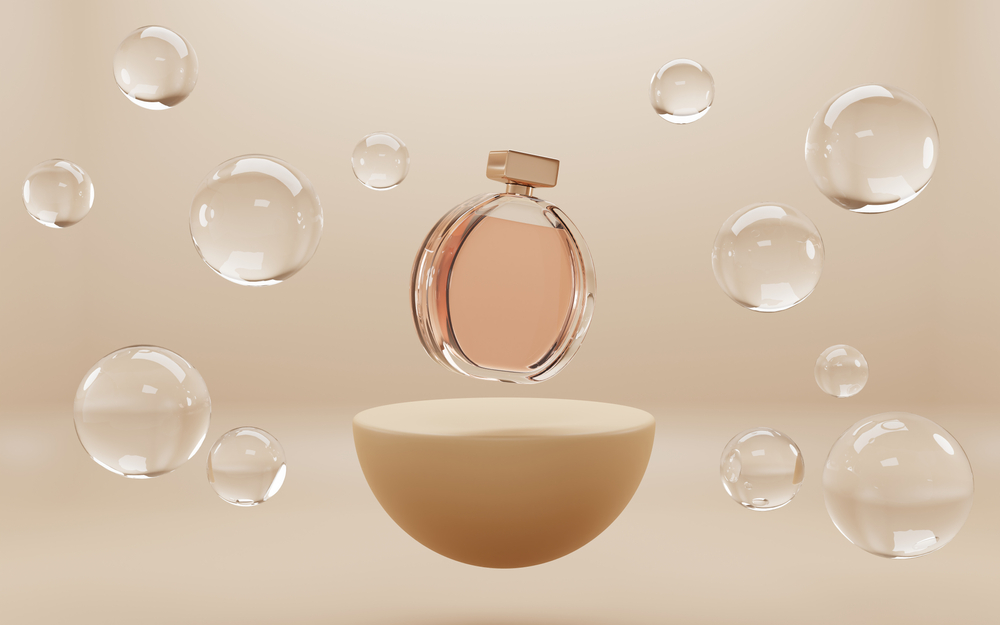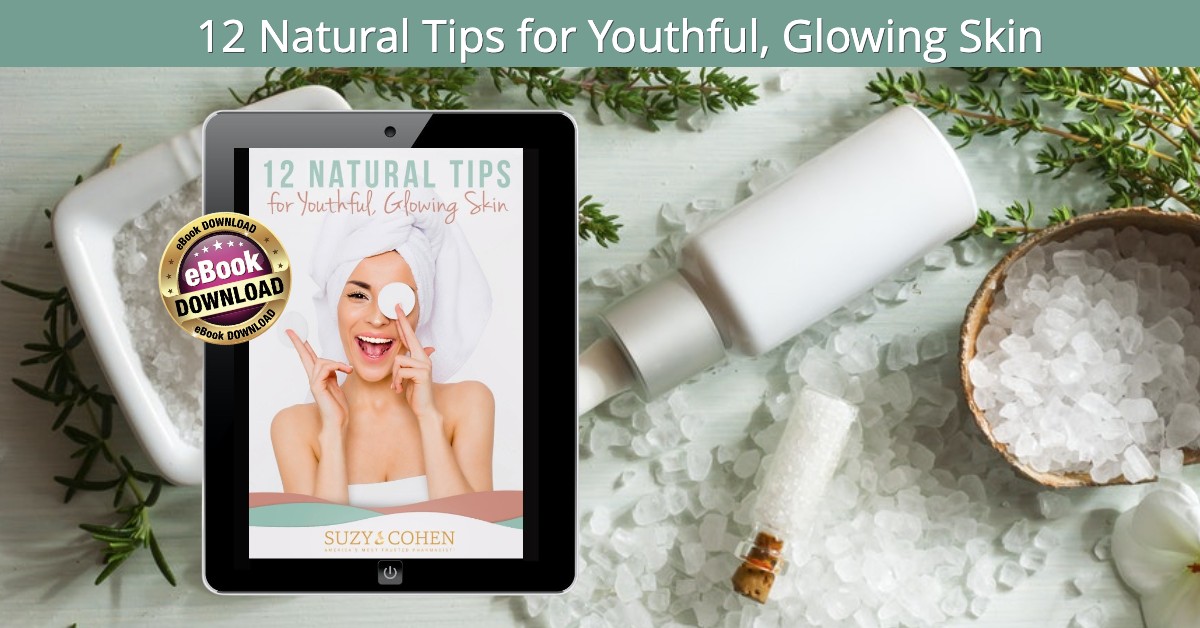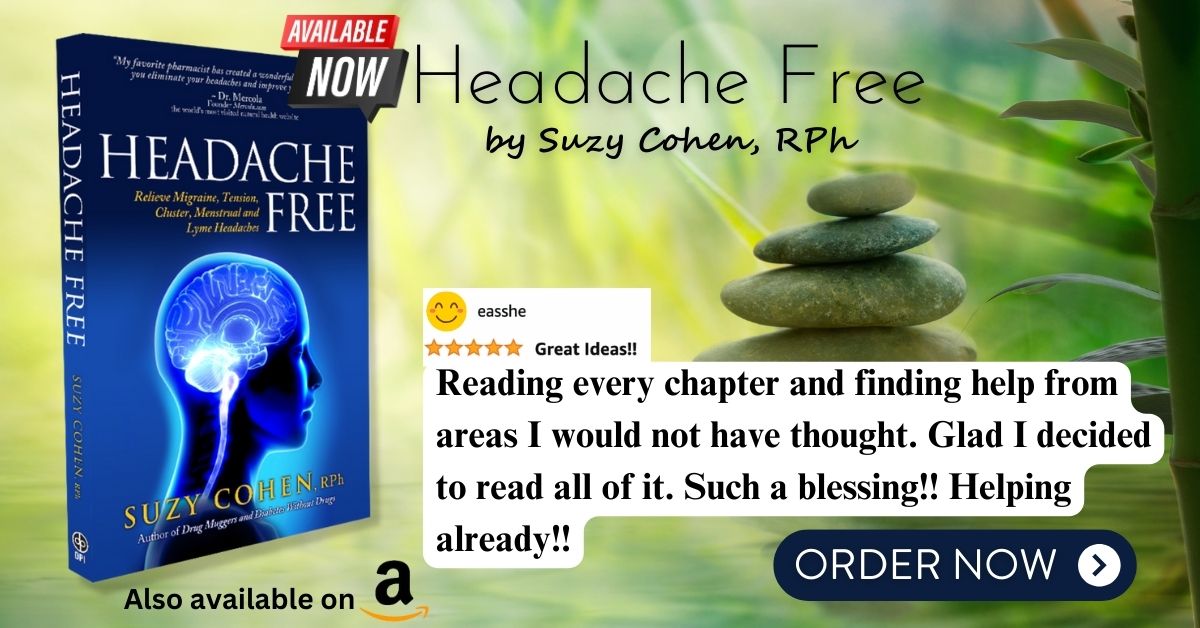What's On This Page?
ToggleMigraines can steal the joy from your life, making you nauseous and sensitive to sounds, perfume, and light, not to mention the pain! There are 50 other symptoms, and it can be a full-body experience. Migraines don’t just stop at your head.
I watched my husband Sam suffer from debilitating headaches for years, so I know how awful they can be. Sometimes they come on so fast that you have to pull over into a parking lot and then call a family member for help. Many people live on triptan drugs and ibuprofen just to get relief. Today I want to share with you some insight on migraines: causes, solutions, and measures you can take right now to help prevent them.
First of all, please check with your doctor to get the proper tests done to make sure your head pain is actually a migraine. Once that is established, and all other serious conditions (like tumors) are ruled out, then the next best thing for me to do is help you determine the cause of your headaches. There has to be a “migrenade” involved, which is my term for something that sets off your migraine pain like a grenade. Capiche? Migrenade. I made that up.

1. Perfume is a strong migrenade!
Let’s talk about perfume for a moment. Let me preface this with I personally think perfume is a lovely thing to wear but I don’t wear it anymore. I have stopped spraying synthetic perfumes and it’s saved me a ton of money, and it’s spared many of you migraineurs a lot of pain. I stopped wearing it after I sat on a plane on a long flight next to an older lady who sprayed herself all over with strong perfume. I couldn’t get away from her, I so desperately wanted to move seats but there were none. I decided at that moment that perfume is rude.
Well, at least on a plane. It forces another person to smell you for hours when they didn’t want to, and if they are prone to migraines, it’s a disaster in the sky for your plane mate.
Perfume is a VERY personal thing… what you like isn’t necessarily what others like. And it stays with you. One of my friends visited me in 2012 and the scent of her perfume is still there every time I sit on my couch. Luckily I like the scent of her perfume, and it’s delicate, but the point is, it stays there for many years. It’s 2016 now, and it’s still there.
Luckily I don’t have migraines or I’d have had to sell my couch. A 2014 study on Cephalalgia concluded, “Odorants, isolated or in association, especially perfume, may trigger migraine attacks after a few minutes of exposure.”
Being mindful of others around me, especially when I travel in closed spaces, I never spray synthetic perfumes. I like natural things, lately, my obsession is “Divine Oil” by Caudalie. And it’s one squirt, usually on my legs after shaving. Even though your odds increase if a family member has migraines, I still think you can overcome them if you know the cause, that’s the hardest part.
Women are three times more likely to get migraines, compared to men, which speaks to an estrogen connection. A sudden drop in estrogen (like at the beginning of your natural cycle or when coming off “the pill” for a week) can trigger a headache cyclically. That’s why some women go on The Pill in the first place.
2. Foods can be migrenades!
For example, the following are commonly associated with migraines, you might call these migrenades:
- Gluten or wheat
- Dairy as in yogurt, butter, ice cream
- Soy-based foods (edamame or soy milk)
- Eggs
- Foods high in histamine (vinegar, mayo, lunch meats, cheese, wine, beer, dried fruits)
- Corn or corn oil
- Lunchmeats or any processed cold-cuts
- Fermented cheese (like Parmesan and Brie)
- Wine
- Sulfites
- Chocolate
If you eat a lot of the above foods, consider minimizing or reducing them and see what happens.
3. Food additives are migrenades!
Avoid food additives at all costs, such as artificial colors, sweeteners or MSG. Don’t freak out, it’s not that hard to avoid if you JERF like my friend Sean Croxton says (Just Eat Real Food). You just have to stop eating food from a box or can.

4. Drug Muggers: Magnesium and Riboflavin
Have you considered nutritional deficiencies? When you run out of a nutrient you could experience more frequent migraines. For example, magnesium deficiency is a common cause of headaches, depression, cramps, and body aches. Magnesium replenishment will reduce migraines. How many docs have told you that your heartburn medicine (especially the PPIs like omeprazole and clan) can so powerfully deplete your magnesium stores that there’s a Black Box warning? In other words, the medicines you need for one situation can indirectly trigger another situation, namely a bad headache! And more.
Magnesium
The mineral that causes relaxation is so awesome at helping headaches that you can give it IV (intravenously) and within 15 minutes or so, experience relief! A deficiency of magnesium can cause more migraines. Coffee is a drug mugger of magnesium by the way! So are antacides.
I read an article in “Pain Physician” (the January 2016 edition), where scientists conducted a meta-analysis of 21 different randomized controlled trials and drew their own conclusion about magnesium. It was rather profound. They stated,“Intravenous magnesium reduces acute migraine attacks within 15 – 45 minutes, 120 minutes, and 24 hours after the initial infusion and oral magnesium alleviates the frequency and intensity of migraine. Intravenous and oral magnesium should be adapted as parts of a multimodal approach to reduce migraine.” It’s the deficiency of magnesium that raises headache risk, not magnesium itself!
Riboflavin
Riboflavin is another nutrient that when depleted, leads to more frequent migraines. Birth control pills, antibiotics (Zithromax, ciprofloxacin, sulfamethoxazole, etc), and tricyclic antidepressants (nortriptyline, amitryptiline, doxepin and others) will crush levels of riboflavin. There are hundreds of other drugs that “steal” riboflavin, magnesium, and other nutrients needed to keep migraines from happening. If you need to take a particular medication, you should consider replenishing what the “drug mugger” steals.
For the complete list of medications that are robbing you blind while you sleep, I will now refer you to my book, Drug Muggers.
5. Pathogens
How crazy would you think I was if I told you that H. pylori (the same bug associated with ulcers) is tied to migraines? A randomized, double-blind placebo-controlled study proved it in 2012, and that was not the first study tethering bacteria, parasites, worms, and viruses to migraines. And to boot, H. pylori is also implicated in thyroid disease. Many migraineurs have thyroid dysfunction.
I wonder sometimes if it’s all pointing to H. pylori. FYI, the treatment for this germ includes an acid blocker… as in a PPI drug (like omeprazole) mentioned above. Why do I see a dog chasing its tail now? If you have to treat H. pylori with a PPI, do so for the given length of time only, and restore your magnesium while on the therapy.
Experts cannot agree on why migraines occur. Some think there are arterial changes that create more blood flow to the head. Drugs like Imitrex, Zomig, and Maxalt work by constricting blood vessels and should be taken immediately. Medicine won’t prevent future attacks, that’s why I stress the importance of finding the triggers. Speaking of stress, minimize it.
6. Mitochondrial Damage
Other experts including myself, think migraines have more to do with mitochondrial (mito) dysfunction and pain-causing cytokines than with inflamed blood vessels. Your mito are energy generators and normally pump out ATP (energy molecule) but something goes awry.
Restoring mito health and reducing cytokines should become every migraine sufferer’s goal. Eradication of infection can help while supplements that support mito health are critical. CoQ10 (or ubiquinol) is among the best. A 2002 study (Cephalalgia) concluded that 61% of participants found at least a 50% reduction in the frequency of migraine attacks over 4 months with CoQ10. Migraineurs could also benefit tremendously from magnesium, riboflavin and lipoic acid. Wrap your head around this type of thinking because my new ideas might help you reach your ultimate goal, a pain-free life!
If you suffer from headaches, you might want to grab a copy of my book called Headache Free: Relieve Migraines, Tension, Cluster, Menstrual and Lyme Headaches. No matter how bad you feel right now, and how many years you’ve suffered, there’s always helpful for you. There are always new treatments, herbs, and medications available.

Suzy Cohen, has been a licensed pharmacist for over 30 years and believes the best approach to chronic illness is a combination of natural medicine and conventional. She founded her own dietary supplement company specializing in custom-formulas, some of which have patents. With a special focus on functional medicine, thyroid health and drug nutrient depletion, Suzy is the author of several related books including Thyroid Healthy, Drug Muggers, Diabetes Without Drugs, and a nationally syndicated column.




